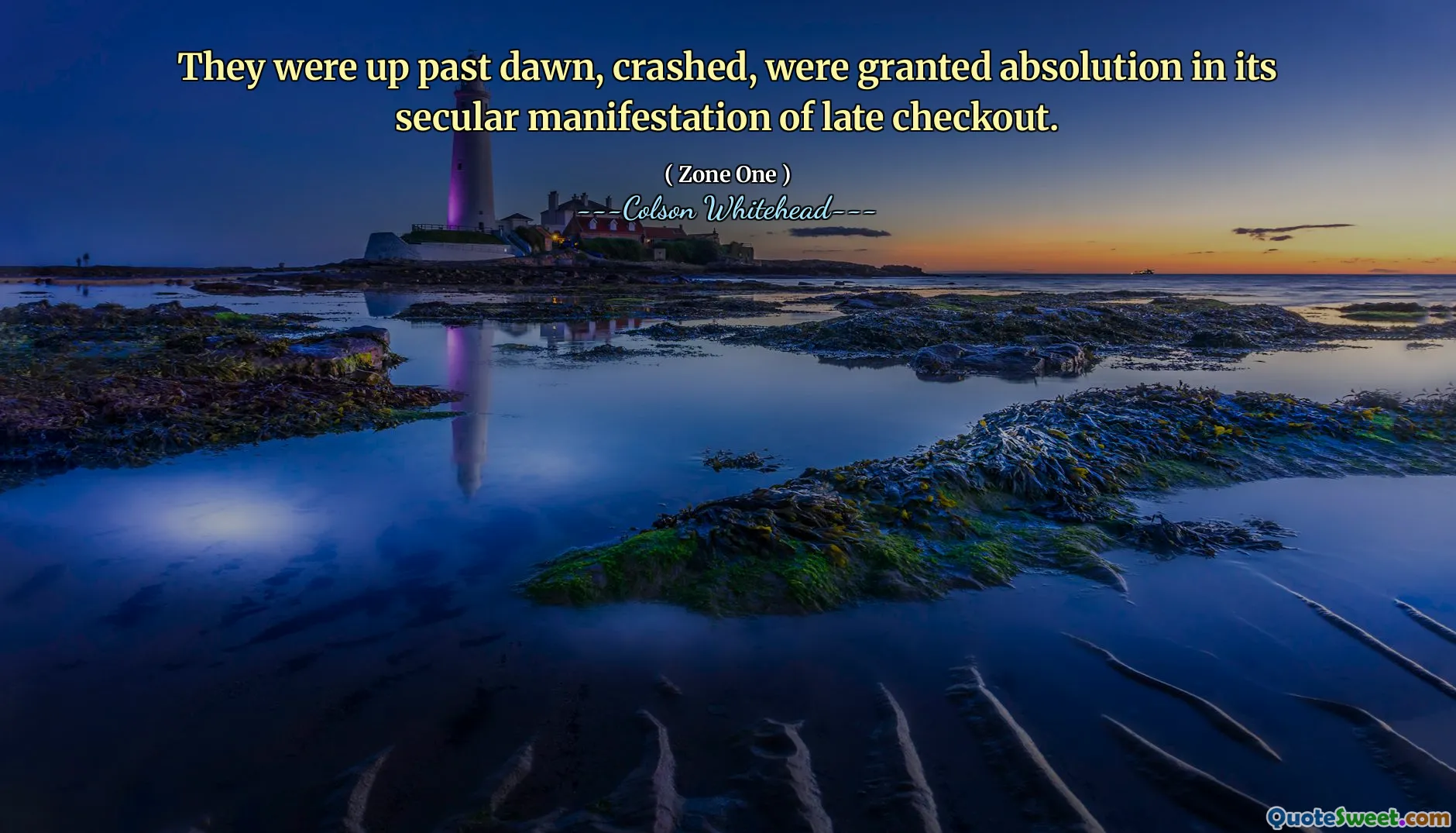
They were up past dawn, crashed, were granted absolution in its secular manifestation of late checkout.
This quote vividly captures the exhaustion and fleeting sense of redemption that often accompanies moments of respite in the chaos of life. The imagery of staying awake past dawn suggests a restless night or relentless activity, where sleep is sacrificed perhaps for reflection, work, or confronting turbulent thoughts. The term "crashed" indicates a sudden and complete exhaustion, as if the body and mind have finally given in after resisting for too long.
The phrase "granted absolution" introduces an interesting juxtaposition. Traditionally, absolution is a religious act of forgiveness and purification, but here it is described as its "secular manifestation"—suggesting that forgiveness and relief have become commodified or redefined outside spiritual contexts. The "late checkout" symbolizes a form of mercy—an extended departure time from obligations or constraints—offered in a pragmatic, perhaps impersonal, manner. It hints at the human desire for one last moment of peace before the inevitable return to routine or reality.
In the current cultural landscape, this quote resonates deeply with modern life's relentless pace. The struggle to find closure or forgiveness in ourselves or others often manifests as a fleeting pause—an extended moment where feel almost granted a reprieve, but only temporarily. It speaks to the universal experience of burnout and the longing for renewal amidst continuous demands. The secularization of absolution reflects how contemporary society seeks solace not necessarily through spiritual means, but through practical, momentary concessions—like a late checkout—symbolizing hope for some reprieve in an unending cycle.
Overall, this quote encapsulates the transient nature of relief in our lives—how we push ourselves to exhaustion, seek forgiveness or forgiveness-like comfort in mundane or bureaucratic acts, and finally surrender, if only momentarily, to the inevitable reset, promising perhaps the next chance for renewal. It invites reflection on the ways we find, or fail to find, genuine redemption in a secular age where moments of grace are often commodified and fleeting.






